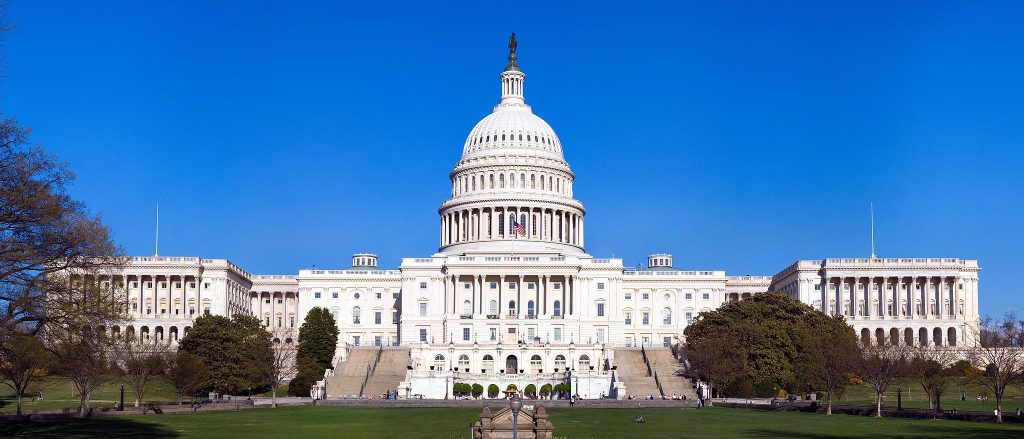Front Porch Blog
After the 2024 election, President-elect Donald Trump announced the creation of a new “Department of Government Efficiency” to be co-led by Tesla Motors and SpaceX CEO Elon Musk and biotech entrepreneur Vivek Ramaswamy. These two heads of the unofficial government department will not be federal employees, but rather consultants who will provide a plan to Trump for him to implement.
The two billionaires penned an op-ed in the Wall Street Journal on Nov. 20 that outlines their proposals. As part of their plan for more “efficient government,” the co-heads outlined a multi-point proposal for reducing the size of the federal government. In this blog series, we will describe the possible impacts of their plan on the people of Appalachia.

Part 2: Impoundment
After reading our first blog in this series, you may have been left with a lingering question — if Congress decides how much funding the agencies receive and for what purposes, how can Elon Musk and Vivek Ramaswamy end funding for these agencies and programs?
As part of their plan for the Department of Government Efficiency, Musk and Ramaswamy wrote in their Wall Street Journal opinion piece that they intend to challenge the constitutionality of the 1974 Impoundment Control Act.

What the heck is impoundment?
This little-known but impactful law was enacted by Congress after President Richard Nixon withheld money from many programs that he opposed, a practice that is referred to as “impoundment.” Congress grew frustrated with this, and in response, passed the Impoundment Control Act. The 1974 law removed this power of the president to withhold funds that Congress had approved. Now, the current law sets out a process by which the president can request Congress take back funds that it previously appropriated. The law requires both the Senate and the House of Representatives to vote and approve the president’s request. If Congress doesn’t vote on the request, it is effectively denied. In the years since the law was passed, Congress has largely ignored any such requests by the president — unsurprisingly, since Congress already voted to allocate the funding.

Confusing? Let’s pretend you’re a kid in a candy store. In this yummy analogy, Mom is Congress, Dad is the president, and you’re a government agency (take your pick — my personal favorite is the Department of Energy). Your mom has $10 in her purse, and she gives it to you to spend in the candy store. She tells you you can spend $5 on chocolate and $5 on suckers. But your dad says — “Hold on there, I don’t like chocolate, you can’t spend that money!” Before 1974, your dad could do that and there was nothing you or your mom could do to stop him. Your dad could impound the chocolate money. Now, under current law, if your dad doesn’t want you to buy chocolate, he has to get your mom to agree that the chocolate money has to go back in her purse. Why would mom do that when she just gave you the money for chocolate? She loves chocolate. (You don’t get a say in either case –— sorry, kid.) Trump, Musk and Ramaswamy want to bring back your dad’s power to take your chocolate money.
A stand off

Musk and Ramawamy’s plan to challenge the 1974 Impoundment law is consistent with previous statements from President-elect Donald Trump. According to NPR, Trump said at a rally in spring of 2024, “We’re going to bring back presidential impoundment authority…”
Trump’s nominee for the director of the Office of Management and Budget, Russ Vought, has also stated he wants to bring back the president’s impoundment authority. This position is important — the OMB is in charge of developing the president’s proposed budget and also examines federal agency programs to make sure they are consistent with the president’s policies. This puts Vought in the position of directing agencies on how to spend their money. According to NPR, Vought said in an interview: “I believe that the loss of impoundment authority — which 200 years of presidents enjoyed — was the original sin. … And we’re going to need to bring that back.”
Congress enjoys maintaining control of spending, and when Trump tried to freeze certain funds during his first term, Congress objected. Experts expect that if Trump challenges funding provided by Congress, Congress may sue the Trump administration. It’s also possible that Trump tries to work with Congress to amend the 1974 Impoundment Control Act, but such a bill is unlikely to gain the bipartisan support in Congress necessary to pass in the Senate. Ultimately, most experts expect this issue to end up in the courts — with the Trump administration claiming that the Impoundment Control Act is unconstitutional.
Why should I care?

All this comes down to who gets to decide who taxpayer dollars are spent. Under current law, Musk and Ramaswamy’s plan to eliminate hundreds of government programs is meaningless unless they can convince members of Congress to go along with their plan. History has shown us that Congress likes these programs that it keeps funding, so it’s unlikely that they will cut all of the programs Musk and Ramaswamy have put a target on. But if Trump succeeds in challenging the Impoundment Control Act, he can block any funding that he doesn’t like, and Congress can’t do anything about it.
It’s unclear so far how much of Musk and Ramaswamy’s plan Trump agrees with — we don’t know if he would necessarily cut all of the “unauthorized programs” we discussed in our first blog. But the undoing of the Impoundment Control Act would lead to much less certainty when it comes to many programs that the people of Appalachia and people all over the country use for economic growth and stability, environmental protection and more.
PREVIOUS
NEXT

Leave a comment
Your email address will not be published. Required fields are marked *

Leave a Comment